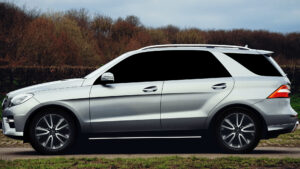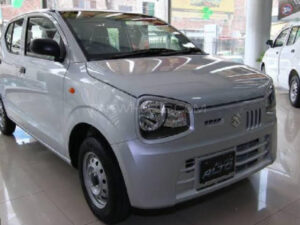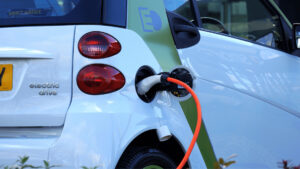Low-interest rates and purchasers’ enthusiasm for locally made cars have driven auto finance to an all-time high of Rs308 billion as of June 2021, up 3.6% month on month and 46 percent since June 2020, according to statistics issued by the State Bank of Pakistan on Monday.
According to SBP estimates, total car finance increased by Rs97 billion from Rs211 billion in June of last year.
Despite high prices for locally produced cars in the last year and a half, followed by late deliveries and expensive premiums, purchasers remained optimistic about taking advantage of the cheap interest rate of 7 percent, which was 13.5 percent in March 2020.
Auto Financing
“The share of auto financing in overall automobile sales currently ranges between 40 and 45 percent depending on car type, up from 15-20 percent two years ago,” said Tahir Abbas, Head of Research at Arif Habib Limited.
People now have a wider selection of locally assembled cars as a result of increased rivalry among new and established players, as well as a significant slowdown in the arrival of imported secondhand cars, he said.
Car demand will remain on an upward trajectory in the next six months as a result of a price cut announced by car assemblers following a 2.5pc reduction in the federal excise duty (FED), additional customs duty to 2pc from 7pc, and general sales tax to 12.5pc from 17pc on vehicles up to 1,000cc,” he predicted, adding that the SBP is likely to keep the interest rate at 7pc in the monetarist.
In FY21, car sales by members of the Pakistan Automotive Manufacturers Association increased by 56.7 percent to 151,182 units, up from 96,455 units in FY20.
Auto car loan has continued to hit the market as the average monthly net borrowings have touched roughly Rs8 billion over the last 11 months.
Automakers and banks have made a fortune due to the surge in car loans in the auto sector due to lower interest rates.
Assuming an average loan size of Rs2.5 million, banks have extended a loan for around 3,100 cars in Pakistan each month since July.
Based on the same assumptions, a fast calculation implies that around 120,000 autos had an active loan as of May 21. Despite the fact that car sales were substantially higher in FY19, auto loans are having their best year yet, with net borrowings topping Rs12 billion for the first time ever on March 21.
Auto car loan currently accounts for 43 percent of all consumer loans.
The car manufacturers and automobile purchasers alike are making fortune, and this expansion is far from ended. Car loans are projected to increase considerably more once the government’s auto policy becomes operational.
First, there is a drop in sales tax for automobiles with engines under 1000cc and a reduction in federal excise duty (FED) across the board—including high-end luxury vehicles—which may potentially reduce car prices by 2 to 6 percent for consumers.
The net effect of this pricing change would most likely have an effect on the monthly burden of an auto car loan on borrowers.
Read More: Launch of three new cars to hit the market in July 2021
With a 20% down payment and current interest rates, consumers would spend between Rs1500 and Rs4000 less for a 5-year auto car loan. Given that car sales are already on the rise, the cheaper price would very probably add to the momentum.
Auto Car Policy
The government is also considering other incentives, such as an auto car loan subsidy that may potentially quadruple the impact of these reductions.
While the scheme’s various modalities remain to be seen—for example, which car buyers will be able to take out the subsidized auto car loan in Pakistan, which vehicles will be eligible under this loan, what the terms of these loans will be (and how the government will fund this subsidy)—one thing is certain: bank loan for car buyers will undoubtedly peak by next year.
The socioeconomic impact of these many measures, how equal these incentives including in loans are for auto car buyers at various income levels, and whether the new cars would, in fact, be “cheap” are questions for another day.
Auto car loan all-time high
Despite the financial dangers associated with the Covid-19 pandemic, loans on an auto car by banks in Pakistan reached an all-time high of Rs297.5 billion in Pakistan, as consumers’ demand for buying a car went into high gear, owing to the availability of a loan on a car at a comparatively cheap interest rate.
New Brands of auto Car in Pakistan
The excitement of owning an automobile reached a new high with the introduction of new models and brands by new entrants, particularly in the categories of auto cars with or over 1,000cc engines and jeep (Sports Utility Vehicles/SUVs).
Bank financing for automobiles increased by Rs86.5 billion, or 41 percent, in the first 11 months (Jul-May) of the fiscal year 2021, to Rs279.5 billion in May 2021, up from Rs211.11 billion at the end of June 2020, according to data released by Pakistan’s central bank the other day.
Read More: 850 CC cars prices down by Rs 200,000 in budget
Such rise in demand for an auto car loan was previously observed during President Pervez Musharraf’s era when banks with lots of liquidity granted enormous sums to auto cars without scrutinizing borrowers’ capacities or ability to repay the banks loans.
The vehicle financing bubble later burst when a huge number of customers failed to pay off their auto car loans. This caused quite a commotion in the financial industry as well as in numerous cities.
The considerable fall in the benchmark interest rate from 625 basis points in March-June 2020 to 7 percent now has resulted in such large demand for a loan for an auto car in Pakistan.
Banks doomed to fail on an auto car loan
Meezan Bank Product Development and Shariah Compliance Senior Executive Vice President Ahmed Ali Siddiqui told The Express Tribune that banks had passed on the benefit of the rate drop to auto car consumers. He further added that it made auto car loan solutions more appealing,”
Second, the Covid-19 epidemic had placed choices to buy a new car on hold, which had a negative impact on the auto sector.
For several months after the Covid-19 outbreak, the auto manufacturers did not produce or sell a single car. They dealt with the calamitous scenario, which has now been reversed due to the great demand for automobiles.
The post-pandemic broader rebound in the economy in general, and in the auto sector in particular, generated double the demand for cars; first, pent-up demand, and second, demand as normal. He said that the crisis has shifted auto car loan into high gear.
Read More: MG Motors starts a test drive of MG ZS Electric Vehicle
He added that banks that continued to offer loan on an auto car on no paperwork (without assessing borrowers’ ability to repay the debt) are doomed to fail (like they did during President Musharraf’s tenure).
Such rash auto car financing has never been granted by an Islamic bank. They are now the market leaders in the car financing segment in Pakistan. Siddiqui said that the share of Islamic banks in total car financing is around 60%.
Arif Habib Limited Director of Research, Tahir Abbas concurred that the rate drop was the primary driver of the increase in car loans. The recovery in the domestic economy fueled this.
Agriculture Recovery boost the demand for an auto car
The agricultural recovery has picked the demand for auto cars in Pakistan.
With the exception of cotton, almost all of the major crops have reported bumper yields this year. There is a surge in demand for cars in an auto sector when agriculture is in full swing,” he stated.
He claimed that the advent of new competitors in the automobile manufacturing business, particularly in the high-end SUV market, as well as the variety of brands and increasing competition, had pushed to a major increase in demand.
Import of Used Cars
More crucially, the import of used automobiles has reduced dramatically as a result of the government’s anti-misuse of the used car policy. This has also aided economic progress.
Following a recent provision of loans on an auto car to non-resident Pakistanis for family members in the nation, demand may continue to rise.
The central bank’s second quarterly (Oct-Dec FY21) report on the state of Pakistan’s economy, issued recently, adding that the steady rupee-dollar exchange rate aided growth in the automobile sector. The majority of car parts are sourced from Pakistan.
Read More: Tesla cars: Company net income exceeds $1b
The automobile and jeep segments were the biggest contributors to this growth in Q2-FY21. There have been multiple reasons like a reduction in interest rates, a stable currency rate, and a surge increase in competition due to new entrants, which have had contributed to an impact on this segment,” the State Bank of Pakistan said in the study.
Low-interest rates on an auto loan
Lower interest rates on a car loan in the auto sector contributed to an increase in automobile financing. The stability of the exchange rate also aided the output of the vehicle sector by keeping the costs of imported components in check. Meanwhile, new market entrants’ models have sparked curiosity, particularly in the vehicle and jeep segments.
The expansion of the automobile industry may have been underreported in the last several quarters, as production data from some of these new players have not yet been included in the LSM index.
Incentives in the budget for small auto car
The demand for small cars will also rise, providing an opportunity for automakers to make fortunes. The government has announced different tax measures that will reduce the prices of 850 CC cars.
Now, low-income groups will be able to buy cars at low prices after parliament has approved budget 2021-22. The reduction in taxes for small cars will help the low-income group to buy them.
The government has reduced custom duty from 30 to 15 percent, exempted additional custom duty and regulatory duty on cars up to 850 CC. This will also give a further push to loan on cars in the auto sector during the current fiscal year 2020-21.
Electric Vehicle
The government has also announced to cut duties on electric cars in the auto sector. This will result in reducing the prices of electric cars. In addition, the government has decided to cut customs duty from 25 to 10 percent in the budget 2021-22.
Under the Finance Bill 2021-22, the government has said that sales tax on locally manufactured cars or electric cars and four-wheelers will be at the rate of one percent.
This rate will continue till 2026 and small cars or SUVs. The sales tax will be one percent on 50 kW batteries or more minor or light commercial vehicles and locally manufactured ones. The customers will have to pay sales tax at the rate of 12.5 percent on the auto cars in Pakistan with up to 850 ccs. This is another incentive in the auto sector that will result in a surge in demand for loans on cars in the auto sector.



